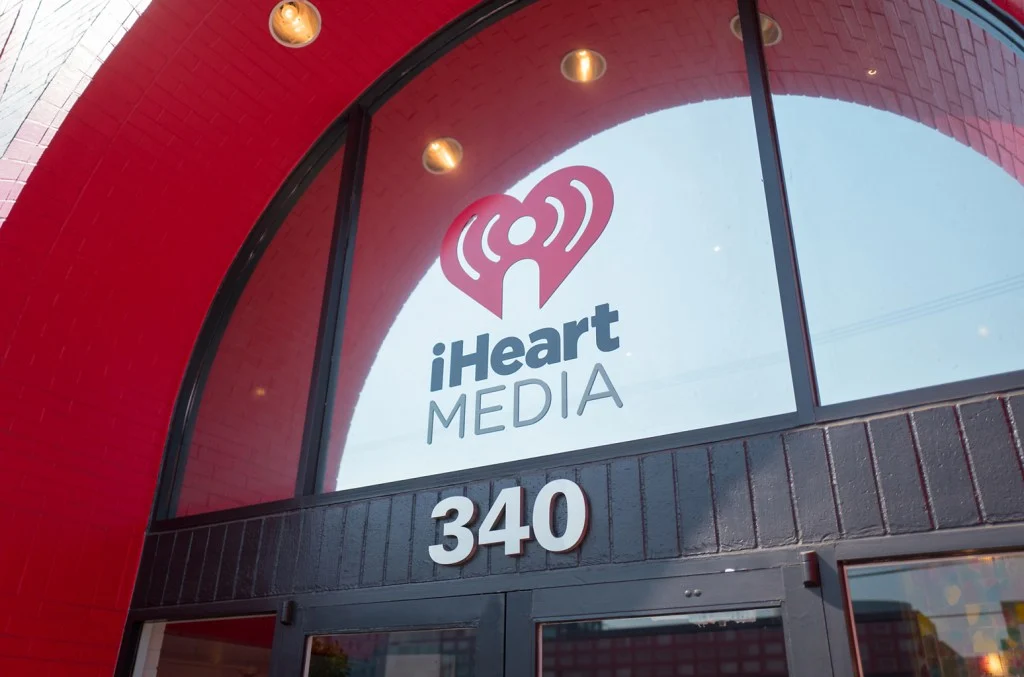earnings
Page: 3
German concert promoter CTS Eventim’s revenue grew 22.0% to 498.6 million euros ($525 million), nearly doubling its 11.6% growth rate in the prior-year period. Adjusted earnings before interest, taxes, depreciation and amortization (EDITDA) rose just 8.9% to 100.3 million euros ($106 million). Adjusted EBITDA margin of 20.1% was more than two percentage points lower than […]
Companies frequently urge investors not to read too much into any one quarter’s results. After all, even large, diversified businesses don’t always take a neat, linear path to consistent annual gains, and any single reporting period can contain oddities that skew the results favorably or unfavorably. But most public companies report results every quarter and, for better or worse, we onlookers read as much into the results as possible.
With that caveat in mind, here are some takeaways from the earnings releases through Thursday (May 15). Note that while most music companies, including the largest ones, have already issued earnings, there are a couple more to come: CTS Eventim will release some first-quarter figures on May 22 and Reservoir Media reports on May 28.
1. Some Margins Improved from Cost Savings
Music companies — like employers across the spectrum — have thinned their headcounts to retool, refocus and ultimately cut down on expenses. Q1 results showed some notable improvements in companies’ bottom lines.
Trending on Billboard
Spotify started seeing bottom-line growth in 2024 after cutting about a quarter of its headcount in 2023. The Stockholm-based music and podcast giant’s operating margin rose to 12.1% from 4.6% in the first quarter of 2024 — an improvement of 341 million euros ($380 million) — while gross margin (gross profit as a percentage of revenue) rose to 31.6% from 27.6%. Gross margin is a good proxy for what Spotify keeps after paying for content costs (it also includes some smaller expenses such as credit card transaction fees and hosting costs). After keeping prices flat for more than a decade, gross profit improved after Spotify began raising prices in 2023.
Operating profit, not gross profit, shows the impact of layoffs (salary expenses are deducted from gross profit to calculate operating profit). Spotify’s operating profit, as a percentage of revenue, improved to 12.1% from 4.6% in the first quarter of 2024. That’s a huge improvement in 12 months, but it’s more remarkable considering the company’s operating profit percentage was negative 5.1% in the first quarter of 2023. CEO Daniel Ek’s controversial decision to make Spotify “relentlessly resourceful” by eliminating thousands of jobs has paid dividends for the company.
Lower expenses also helped the Sphere venue in Las Vegas show improvement in operating margin. Sphere’s sales, general and administrative expenses fell 12% as the company identified costs to reduce, including corporate support functions, Sphere Entertainment Co. CFO Robert Langer said during the May 8 earnings call. That helped offset a 12.8% decline in revenue due to fewer events being hosted by the one-of-a-kind venue. The opposing growth rates cancelled each other out, and Sphere’s operating income was flat in the quarter. Investors apparently liked Sphere’s ability to reduce costs: The share price of its parent company, Sphere Entertainment Co., surged 6% the day of the earnings release.
Over at Universal Music Group (UMG), which embarked on a cost savings plan in early 2024, the company’s adjusted earnings before interest, taxes, depreciation and amortization (EBITDA) margin was flat at 22.8%. Though the company’s global head count rose slightly to 10,346 on Dec. 31, 2024, from 10,290 on Dec. 31, 2023, according to its annual reports, the amount spent on salaries and benefits fell 14% to 1.79 billion euros ($1.94 billion) in 2024.
As for the other two majors, Sony’s operating margin improved to 18.0% from 16.9%, while the operating income before depreciation and amortization (OIBDA) margin at Warner Music Group (WMG) fell to 20.4% from 20.9%, due primarily to a change in revenue mix (meaning there was a higher proportion of low-margin physical sales compared to the prior-year period), though it was partially offset by savings from restructuring. WMG’s operating margin jumped to 11.3% from 8.0% due in part to a decrease in restructuring charges incurred in the prior year.
2. Subscriptions Lead the Way
Two companies had impressive subscriber gains in the quarter.
Spotify’s Premium revenue was up 16% year-over-year, and average revenue per user (ARPU) was up 4%. Subscription revenue was 90% of Spotify’s total revenue, the highest mark since Q3 2020 when advertising dried up — and subscription revenue exploded — at the onset of the pandemic. In fact, subscriptions have been Spotify’s workhorse in recent years, with subscription revenue growing 39.0% over the past two years compared to 27.4% for advertising revenue. After two rounds of price increases in the U.S. and U.K., plus hikes in many other countries, ARPU grew 9.5% in that two-year span.
Meanwhile, at Tencent Music Entertainment (TME), subscription revenue was up 16.6% and ARPU was up 7.5%. TME did not provide an updated subscriber count for its Super VIP tier — it’s still listed at 10 million-plus — but the company did disclose that high-quality audio and other perks are driving Super VIP conversions. Given that Super VIP costs five times the normal subscription price, it makes sense that it was the primary driver of the 7.5% jump in ARPU.
This is a case of the spoils going to the two largest music subscription services by subscriber count. MIDiA Research’s music subscription market shares for Q4 2024 put Spotify at No. 1 with 32% and TME at No. 2 with 15%. Spotify finished Q1 with 268 million paying customers (plus another 423 million ad-free listeners), while TME had 122.9 million.
Some other subscription services have been performing well, too, although only one other publicly traded music streaming company has released detailed financial statements for Q1. A revealing comment came from UMG, which saw double-digit revenue growth from four of its top 10 streaming partners and high single-digit growth at a fifth, the company said during its April 29 earnings call. Billboard believes two of the top four partners were likely Spotify and TME. The other double-digit growth services are anyone’s guess, but it probably wasn’t Deezer — the company’s total revenue rose just 1% in Q1 as its subscriber count fell 5.4%.
3. Advertising revenue was unsurprisingly mediocre but not terrible.
With the subscription business booming, there’s less pressure on the advertising side of music streaming to deliver value for platforms and rights owners. Good thing, too, because advertising hasn’t delivered much growth lately. In the U.S., advertising-based streaming royalties’ share of total recorded music revenues fell to 10.4% in 2024 from 10.9% in 2023 and 11.4% in both 2021 and 2022.
The numbers looked better in Q1 for Spotify, whose ad revenue rose 8% year-over-year (5% at constant currency). But because Spotify’s subscription business is faring better, advertising’s share of Spotify’s total revenue fell to 10.0% from 10.7% in the prior-year period. In fact, 10.0% was the lowest share for Spotify’s advertising since the early pandemic — 8.0%, 6.9%, and 9.4% in Q1, Q2, and Q3 of 2020, respectively.
Advertising is the lifeblood of the radio business. That explains why radio companies’ stock prices have fallen sharply over the last two years. iHeartMedia revenue rose 1% on the strength of a 16% gain in digital revenue, although the multi-sector segment that houses its broadcast radio business was down 4%. U.S. tariff policy has injected uncertainty into media companies’ outlooks, but iHeartMedia CEO Bob Pittman said on Monday (May 12) that iHeartMedia was seeing “generally stable ad spend.”
The same story played out at other radio companies: Total revenue change wasn’t bad because digital gains helped compensate for losses in broadcast ad revenue. Cumulus Media’s revenue fell 6.4% as broadcast dropped nearly 11% and digital gained 6.1%. Townsquare Media’s revenue fell 1% as gains in digital advertising (up 7.6%) and subscriptions (up 4.2%) almost offset a 9.1% decline in broadcast advertising.
SACEM collected a record 1.6 billion euros ($1.73 billion) in 2024, up 7.7% from 2023, the French organization announced this week, fueled largely by international expansion. In France, SACEM collected 852 million euros ($922 million, based on the average annual conversion rate for 2024), up about 2%. Internationally, though, it took in 749 million euros ($811), a gain of 15%. That means that almost half of SACEM’s revenue is international, which is significant for a CMO in a market with a strong national repertoire. Royalty distributions were up 12%, to 1.4 billion euros ($1.5 billion).
For SACEM, like other big European CMOs, it’s a whole new world, thanks to the ability to represent online rights across much of the world (although not the U.S.). As general music business growth slows, mostly due to streaming subscription saturation in big markets, this has allowed SACEM to continue to grow by signing deals with publishers and other CMOs.
Trending on Billboard
“The strategy we’ve developed over the last years is to convince publishers and other CMOs to join forces with us to be able to better deal with platforms, not from an equal position but one that’s more balanced, and to invest in tools that benefit everyone,” SACEM CEO Cécile Rap-Veber told Billboard at the Music Biz Conference in Atlanta, where she also did a keynote interview. “We’ve secured new mandates to represent more repertoire, so we can take in more money and reduce our costs.”
For most of the history of SACEM, which has operated since the 1850s, before any of its peer societies, the organization did most of its business in France. CMOs remitted money to other CMOs, but the European organizations did not really compete with one another. That changes with a 2014 European Union Directive that generally allowed CMOs to maintain their national monopolies but also to compete for online rights. Competition in the decade since allowed two giant “licensing hubs” to emerge: SACEM and ICE, a joint venture of PRS for Music (the UK CMO), GEMA (the German one) and STIM (Swedish). While direct comparisons are difficult because of the way the different organizations report their results, SACEM has become either the biggest CMO outside the U.S. (based on royalties it collects and distributes) or the biggest in the world (based on the total amount of money it takes in, some of which it passes directly to other organizations for them to distribute).
SACEM now represents 510,000 songwriters and rightsholders worldwide, in 180 territories. Its international royalties, almost all online, have grown 29% since 2023. It signed 16 new deals – mandates is the term used – this year, in addition to the 70 it already had, including with Universal Music Publishing, ASCAP, the Canadian CMO SOCAN, and the Korean CMP KOMCA.
Rap-Veber’s strategy is that this kind of expansion creates a virtuous circle: Increased scale leads to increased revenue, which allows for increased investment, which in turn leads to further increases in scale. That scale also allows for wider scaring of costs, which lets rightsholders take a higher percentage of the money SACEM collects.
The industrywide slowdown in growth is intensifying competition among societies, as limited natural growth means expansion must come from international markets, or at the expense of peer organizations. As fears of economic contraction grow in Europe and the U.S., it is hard to imagine national growth that’s significantly higher than inflation on a sustained basis. That puts the focus on other markets, where the larger international societies can compete. “We have direct license deals now in India, Vietnam and the Philippines,” Rap-Veber says. “With almost 80 partners, we have the weight to be an international player, with more penetration in more countries.”
As SACEM expands globally, it continues to prioritize local cultural investment in France, where it follows a dedicated cultural strategy. With the money it took in from the blank media levy — a copyright fee charged on blank media and computer memory — it put aside 20 million euros ($22 million) for 3,600 cultural projects in France, including 478 festivals and 185 venues.
Profitability at K-pop company JYP Entertainment fell in the first quarter due to a lack of large tours and an album release schedule that favored young, developing artists. While revenue reached 140.8 billion KRW ($97 million), up 3% from the prior-year period, operating profit fell 42%. Operating margin — operating income as a percentage of […]
Sony Music reported record high operating profit and a 14% jump in revenue for its fiscal year, as revenue from subscription streaming and its live, merchandise and sync business bolstered earnings, parent company Sony Group Corp. reported Wednesday (May. 14). Sony’s music segment, which includes Sony Music Entertainment, Sony Music Entertainment Japan and Sony Music Publishing, […]
In a year filled with economic uncertainty and instability, iHeartMedia is seeing “generally stable ad spend,” CEO Bob Pittman said during the company’s first quarter earnings call on Monday (May 12).
The radio and podcasting giant had first-quarter revenue of $807 million, up 1.0% from the prior-year period. Excluding political advertising, which was boosted by the 2024 elections, revenue increased 1.8%.
The multi-platform segment, which includes broadcast stations, had revenue of $473 million, down 4%. But Pittman expressed cautious optimism that radio advertisers are remaining with the format. Premiere Radio Networks, which represents national advertising, was up 2% in the quarter. “I think that’s sort of an indication that the bigger advertisers are hanging in there,” he said.
The 1% revenue uptick was a positive for a company that stood to bear the brunt of an advertising slowdown due to U.S. tariff policy. Analysts had expected revenue to decline 1.6% to $786 million.
Trending on Billboard
iHeartMedia is increasingly a podcast company, and the digital audio group continued to be a growth source. In digital, revenue rose 16% to $277 million and adjusted earnings before interest, taxes, depreciation and amortization (EBITDA) improved 28% to $87 million. The company had a unique podcast audience of 32.7 million and 177 million streams and downloads in March — both No. 1 in the U.S., according to Podtrack.
“We’re beginning to feel the flywheel effect of being the strong number one in podcast publishing. Our podcasting financial discipline and our focus on the high-margin podcast publishing sector continue to fuel what we believe is the most profitable podcasting business in the United States and to accelerate our growth,” said Pittman.
The audio and media division’s revenue fell 14% to $59.3 million due primarily to non-recurring contract termination fees earned by Katz Media last year. The segment’s adjusted EBITDA dropped 33% to $15.8 million.
The company expects its second quarter consolidated revenue to be down in the low single digits compared to the same period last year. April “pacing” was down 2% year over year, according to CFO Rich Bressler. For iHeartMedia to hit its full-year guidance and avoid a possible down advertising market, Bressler added, the company will need “some positive movement in the macro [environment] and improvement to the uncertainty in the back half of the year.”
Shares of iHeartMedia jumped 19.3% to $1.54 in early trading Tuesday (May 13) but had fallen to $1.22, down 5.4%, by midday.
Tencent Music Entertainment (TME) said on Tuesday a 17%-surge in music subscription revenue drove higher first quarter revenue for China’s fast-growing streaming platform.
Total revenues rose 8.7% to RMB7.36 billion (US$1.01 billion), with music subscription revenue up 16.6% to RMB4.22 billion (US$581 million) for the quarter ending March 31, 2025, compared to the same time period a year ago. TME’s total subscriber base now stands at 122.9 million, up 8.3% from a year ago. While that is still less than half of Spotify’s total number of paying subscribers — Spotify reported 268 million subscribers in the first quarter — it drove monthly average revenue per paying user (ARPPU) up to RMB11.4 ($1.57) from RMB10.6 ($1.47) a year ago.
“With the sound foundations we have built, a thriving music ecosystem, and healthy financial position, we are well equipped to navigate global uncertainties,” TME’s executive chairman Cussion Pang said in a statement. “We remain on track … to achieve sustainable growth in 2025.”
Trending on Billboard
The Chinese music streaming company operates three music streaming services — Kugou Music, QQ Music and Kuwo Music — as well as WeSing, a karaoke app. In recent years, Tencent Music’s business has become dominated by music services, while its social entertainment business has declined.
Online music revenue increased by nearly 16% to RMB5.80 billion (US$800 million) from a year ago, driven by the rise in music subscription revenues and an increase in advertising revenue. The business also benefitted from higher merchendise revenue from physical album sales for artists like Teens in Times and Silence Wang, and offline performance revenue.
Chinese genres are still the most popular music streamed on its platform, TME executives said, but the growing popularity of Korean, English and Japanese tracks on Tencent Music drove the company to expand existing partnerships with South Korea’s Starship Entertainment and YG Entertainment and Japan’s ACG entertainment company during the quarter.
The company also disclosed it signed a new multi-year licensing agreement with Sony Music Entertainment and extended agreements with Emperor Entertainment Group and Rock Records during the quarter.
TME’s social entertainment business, which has been in decline in part due to government crackdowns on social platforms, fell by nearly 12% to RMB1.55 billion (US$214 million). TME said the decline was “mainly the result of adjustments to certain live-streaming interactive functions and more stringent compliance procedures implemented.”
The strength in subscription revenues drove TME’s gross margin to 44.1% from 40.9%, with a total operating profit of RMB4.84 billion (US$666 million) in the first quarter of 2025, a whopping 146.9% increase from a year ago. Net profit attributable to equity holders was RMB4.29 billion (US$591 million), representing 201.8% year-over-year growth.
The company also said it received 2% equity stake in Universal Music Group in March as a result of a “distribution-in-kind from one of our associates” worth RMB2.37 billion (US$327 million).
Pershing Square Holdings, the hedge fund run by UMG board member Bill Ackman, sold 50 million shares of its UMG holdings — approximately 2.7% of UMG’s outstanding stock — in mid-March as part of a campaign to get UMG to list in the United States.
With tourism to the U.S. on shaky ground and consumer sentiment waning, Sphere Entertainment Co. CEO James Dolan says the Sphere venue in Las Vegas is on sound footing.
“There’s a little bit of Chicken Little going on in our economy,” Dolan said during the earnings call on Thursday (May 8), referring to the children’s fable about unfounded warnings that the sky is falling. “Maybe later we’ll see a more substantive reaction from the marketplace, but right now we’re not really seeing it.”
International guests account for 10% of guests to Sphere’s concerts and “a little over” 20% of visitors to Sphere Experience, the viewings of Sphere’s original content, according to Dolan. Even if Las Vegas experiences a decline in tourism, Dolan believes Sphere will be insulated by strong demand for its state-of-the-art performances. “When it comes to concerts,” he said, “demand exceeds capacity, so we have room to absorb any issues.”
Trending on Billboard
International relations and tariff concerns couldn’t be blamed for the decline in Sphere revenue in the company’s fiscal quarter ended March 31. Instead, it was an issue of fewer events that caused a 12.8% decline in revenue, to $157.5 million, the company’s parent, Sphere Entertainment Co., announced Thursday.
Sphere did show greater operational efficiency in the quarter. Selling, general and administrative expenses fell 12%, and adjusted operating income (AOI) was flat at $13.1 million despite the decline in revenue.
Investors reacted positively, sending shares of Sphere Entertainment Co. as high as $31.43, up 5.5%, on Thursday morning. The share price was up 5.2% to $31.33 in early afternoon trading.
With residencies by The Eagles, Dead & Company and Anyma, Sphere hosted 10 more concerts than the year-ago period. But the Sphere Experience had fewer showings of original content — Postcard From Earth and V-U2 An Immersive Concert Film — compared to the prior-year period. The quarter also had a difficult comparable because Las Vegas hosted the 2024 Super Bowl, which resulted in a record-setting week for Sphere’s advertising, CFO Robert Longer said. Those decreases were partially offset by increases in event-related revenues and the impact of Delta Air Lines’ corporate takeover of Sphere during CES in January.
Total Sphere Entertainment Co. revenue, which includes MSG Networks, fell 13% to $280.6 million. Consolidated AOI fell 25.6% to $36 million. MSG Networks revenue was $123.0 million, down 19% from the prior-year period, which reflects a nearly two-month absence of programming from Altice while the two parties renegotiated a multi-year renewal.
Dolan said he’s confident the company can drive growth this calendar year through “an array of concerts and third-party events,” sponsorships, and driving operational and cost efficiency. While he didn’t provide details on unannounced future residencies, Dolan said Sphere is having discussions with “multiple artists” and has more demand than availability of shows. “The pipeline is very full,” he assured.
Warner Music Group reported quarterly revenue edged nearly 1% lower and net income was down almost 63% for the start of the year, as the label home of stars like Bruno Mars and Lady Gaga struggled with tough comparisons to last year’s quarter.
WMG reported overall revenue of $1.48 billion and recorded music revenue of $1.175 billion, a 1% decline, for the fiscal second quarter, which ended March 31, compared to a year ago. Publishing revenue rose 1% to $310 million. Net income was $36 million compared to $96 million a year ago, due to lower recorded music revenue, a $34-million loss due to exchange rates costing the company more on its euro-denominated loans and an $11 million increase in a certain kind of taxes.
Total digital revenue slipped 1% with streaming revenue roughly flat, which reflects the comparison to last year’s boon quarter, a lighter release slate and market share loss in China.
Trending on Billboard
WMG CEO Robert Kyncl says these results belie the green shoots showing from company’s cost-cutting and new releases strategy, which he says results in their growing market share of new releases. Songs performed by WMG artists like Mars, Billie Eilish, Benson Boone and Teddy Swims currently claim half of the spots atop Billboard’s Global 200 chart.
“Our strategy is starting to bear fruit, with our strongest chart presence in two years … As a result, our true strength this quarter was partially obscured by challenging comparisons with last year’s outperformance,” Kyncl said in a statement, referring in part to last year’s 13.5% subscription streaming growth. “As we replicate our strategy across other labels and geographies, and drive a virtuous cycle of greater reinvestment, we expect to deliver lasting value for artists and songwriters, and sustained growth and profitability for shareholders.”
Adjusted operating income before depreciation and amortization (OIBDA) declined 3% to $303 million, and adjusted OIBDA margin decreased half a percentage point to 20.4%.
Because it earns more than half of its income from outside of the United States, WMG releases earnings on constant currency basis — a method that updates last year’s revenue and other line items using this year’s foreign exchange rates.
On a constant currency basis, overall quarterly revenue rose 1% — though recorded music and publishing both still declined by 2% and 5% respectively — and adjusted OIBDA declined by 1%.
Growth in music and concert revenue pushed K-pop company SM Entertainment’s consolidated revenue to 231.4 billion KRW ($159 million), up 5.2% from the prior-year period. Operating profit of 32.6 billion KRW ($22 million) was up 109.6% while operating margin improved to 32.6% from 15.5%. SM’s concert revenue grew 58.0% to 39 billion KRW ($27 million) […]

 State Champ Radio
State Champ Radio 










